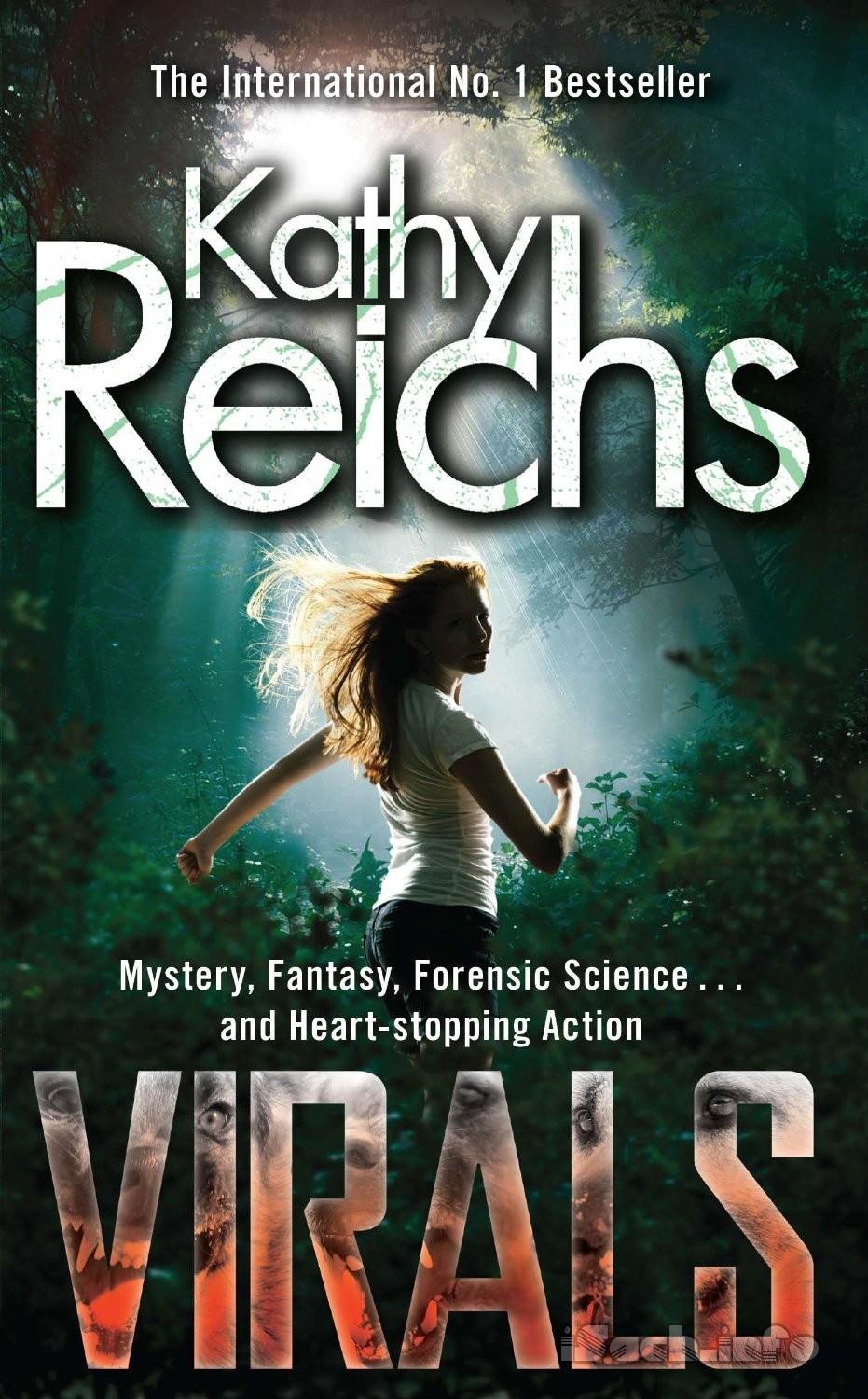Chapter 58
“W
hy go out there now?” Shelton, as usual, was nervous.“The thing is falling apart.”
We’d gathered aboard Sewee, at the Morris Island dock. Our bunker was out. Too risky. Ben and Shelton had settled Coop into the ladder bunker, the best we could do for now. I hoped he wouldn’t wander too far.
“Katherine might’ve gone to the lighthouse,” I said. “That could be where she was attacked.”
“But her body was buried on Loggerhead,” Ben said. “We know that, even if no one believes us. Who cares if she stopped by the old lighthouse?”
“According to Abby Quimby, Katherine recorded everything she did. If we recover her notebook we might get the answers we need.”
“We’re going to find a forty-year-old journal?” Ben was way beyond dubious. “You can’t be serious. Anyway, the police checked the lighthouse.”
“They didn’t know about Katherine’s plans,” I argued. “Maybe they didn’t look very hard. Maybe they missed something important.”
“Weak,” Shelton said. “This lead is way slimmer than a needle in a haystack.”
“It’s the only idea I’ve got, ” I said. “Unless you want to chase down a trigger-happy ex-con.”
“We should go to the police,” Shelton said. Again. “Tell our parents about Karsten’s murder. They’ll have to believe us when he turns up missing.”
“The cops don’t trust us,” Ben said. “We cried wolf once, remember? And while we screw around debating this, the killers could find us again.”
“We can be to the lighthouse and back in a hour,” Hi said. “Why not just cross it off the list?”
“Sold.” Ben fired up the engine.
o O o
The Morris Lighthouse rises like a decrepit old sentinel off the island’s southern tip. The sandbar on which it stands is often submerged, so the sea occasionally floods its ground floor. Wind and rain have stripped away most of its paint.
It was high tide, so Ben motored directly to the base of the tower.
I ran my eyes up 160 feet of crumbling stone, a bleak, solitary spike surrounded by ocean on all sides. Dark and empty, the structure seemed to brood. Resentful at being abandoned? At losing its battle with the elements?
It’s the most depressing thing ever, I thought.
“It’s big,” I said. My understatement of the year.
Hi nodded. “When did they build this monster?”
“1876.” Shelton had a book on Carolina lighthouses. Of course. “This lighthouse replaced an older one destroyed during the Civil War. And that one replaced an even older one constructed in 1673.”
“Does the light still work?”
“Nope,” Shelton said. “They shut it down in ’62. When they originally built this baby, it was on dry land, but the water level has been creeping up ever since.”
“So now she stands alone in the sea.” Hi whistled. “Freaky.”
“There used to be a keeper’s residence. They tore that down in the thirties when the light became automated.”
“Who owns it?” I asked.
“The state,” Shelton said. “Some non-profit is hoping to restore the whole thing, but for now it’s closed to the public.”
“Which means we make this quick,” Ben said. “I’m not getting busted for trespassing.”
Conservationists had recently installed a steel cofferdam around the lighthouse to protect it from rising tides. The circular barrier looked like a giant metal coffee filter sticking eight feet up from the sea. Inside, the water had been drained to its previous level.
Ben anchored Sewee alongside the cofferdam. We pulled ourselves up onto the rim and followed the single catwalk to the base of the lighthouse. Up a short brick stairway, and we reached the entrance.
A large sign read: Danger: No Trespassing.
Big bold letters. Not an inch of wiggle room.
The wind whipped my hair and clothing as I stood watching Shelton pick the padlock. I wished I’d brought a jacket.
Finally, the prongs popped free and we trooped inside.
The ground floor looked like the bottom of a birdcage. One that hadn’t been cleaned in ages. Sticks. Feathers. Gallons of bird poop. The harsh stench of ammonia was almost overwhelming.
“What’s that?” Shelton was eyeballing a pair of gray cable boxes attached to the tower wall. Wires ran from their ends and branched to cover fissures in the stonework.
“Strain gauges. Probably monitoring cracks to make sure they don’t grow.” Hi pointed out two more of the devices. “They’re also monitoring how much the tower leans. An early warning system in case the whole shebang decides to topple.”
“Comforting,” said Ben.
A rusty metal staircase spiraled up the tower’s interior. Tipping my head back, I looked straight up. The stairs cut through the ceiling, a hundred feet above me.
“Let’s climb,” I said.
“Is it safe?” Shelton pushed with both hands against the wall. “It feels like I could shove the whole thing over.”
“This lighthouse has been standing for a century,” Hi said. “I think it can handle a few teenagers. Even a fat one like me.”
“Come on, we don’t have all day,” Ben said.
He began climbing. His shoes made soft clanging sounds. Particles of rust cascaded to the ground.
The rest of us followed in single file: me, Shelton, Hi.
Circling upward, I passed long narrow windows without any glass. Birds darted from the weathered sills, startled by the invasion.
By the time I reached the top, I was sucking wind.
Note to self: break out the running shoes.
The stairs ended inside a small round chamber. This floor was heaped with old bird’s nests, broken eggshells, and windblown debris. Several inhabitants cawed loudly before winging out the window.
“It stinks like a chicken coop in here,” Ben complained.
“This is the watch room.” Shelton’s hand covered his nose. “Machines in here used to rotate the lantern above.”
“Where does this lead?” Hi had crossed to a staircase on the chamber’s far side.
“The lens room should be one level above us.” Shelton pointed to an opening halfway up the stairs. “You can reach the main gallery through there. Not me though.”
Three blank looks.
“The gallery is a steel balcony that circles the tower,” Shelton explained.
“Cool!” I climbed to the opening and stepped outside.
My breath caught in my throat.
The sun was low, throwing pink and yellow rays across a blue-green ocean. Below me, the coast met the sea like a crumbled linen tablecloth. I could see our tiny community on Morris, beyond that Fort Sumter and Sullivan’s Island.
To my left, the town of Folly Beach looked like a string of Monopoly houses crawling the beach. Here and there, a window or porch light glowed yellow in the rosy dusk.
I glanced up over my shoulder. The lighthouse was topped by a giant metal birdcage rising into an iron dome. The space inside was vacant. Gulls watched from the ironwork, wary of my unwelcome presence.
I imagined the powerful beam that had once sliced the darkness, guiding sailors safely to Charleston Harbor. It must’ve been an awesome sight.
Hi and Ben emerged onto the walkway.
“Whoa.” Ben gazed down at his runabout bobbing far below. His face lost its color.
“Shelton, check this out,” Hi called.
“Thanks, but I’m not falling to my death today.”
“Your loss.”
I circled the tower, taking in the panorama. Trespassing or not, I could’ve stayed forever.
“We should go.” Ben’s forehead was damp. He avoided looking down. “There’s nothing here, and another boat could cruise by any time.”
“One more area to check,” I said.
Ducking inside, I hustled up to the lens room. Smaller than the one below, this chamber had barely enough footage to turn around. The iron framework rose above me, glassless, open to the sky.
No furniture. No equipment. Dozens of angry gulls. I didn’t linger.
“Time to give up?” Hi asked.
I nodded. We’d looked carefully. The tower was an empty shell. This trip was a failure.
With exaggerated groans, the boys began the long descent.
What a waste, I thought. We were no closer to solving Katherine’s murder than when we started. The killers were still in the clear.
I paused, watching the tops of the boys’ heads spiral down the stairs.
It was stupid to think we could make a difference. That a bunch of teenage brainiacs could outsmart a murderer. Our adversary had probably been laughing the whole time.
Score another win for bad guys everywhere.
My fists clenched as my frustration boiled like a kettle. I was angry enough to spit.
SNAP.
The bird stink almost knocked me off my feet. I couldn’t think, couldn’t breathe. Gagging, I held my breath, desperate for fresh air.
Without thinking, I scrambled back out onto the gallery, desperate to escape the noxious fumes.
Outside, I gulped oxygen in huge gasps. Too quickly. Spots danced before my eyes. My vision expanded, then retreated down a long, black tunnel.
Terrified of falling, I sat down on the balcony, hands clamped on the railing.
Deep breath. Two. Three. Four.
Slowly my mind unscrambled. My head cleared, and the darkness receded. I glanced out over the water.
“Wow.”
The world lay before me in immaculate detail. I could see the smallest objects with laser precision. Particles of vapor making up clouds. Water droplets hanging above foam-topped waves. A worm wiggling in the mouth of a sparrow. My own bedroom window.
My gaze flew across the harbor to Charleston itself. Lights now twinkled everywhere. Soft yellow rectangles in the homes along the Battery. Neon orange and blue strips near the old market. A stoplight changing from yellow to red.
Through the acrid ammonia, my nostrils picked up millions of other scents. Salt. Algae. Rotting vegetation. Diesel fuel.
And something else. New. Familiar.
I raised my chin. Sniffed.
There. That direction. Trickling from the watch room.
I crawled to the opening, poked my head inside, and sniffed. The odor flickered in and out, barely perceptible beneath the cloying stench of refuse.
With a jolt, I recognized the newcomer. Something I’d smelled only once before.
Excited now, I drew air through my nostrils. The reek of bird poop watered my eyes. I wiped away tears, tracing, hunting, pinpointing.
The smell was coming from the floor beside the small balcony staircase. If I hadn’t sat right where I was, I might never have noticed.
I scurried inside and began clawing away leaves and turds. Bird crud coated my fingers and jammed under my nails. I fought the urge to puke.
Six inches down, I uncovered a steel grate in the floor, clogged with years of debris.
A noise startled me.
My head whipped around.
“Tory, what are you doing?” Ben was panting and his face was red. “I had to climb all the way back up.”
SNUP.
I blinked. Shook my head.
“Shoot. I lost my flare.”
“You were flaring up here? Why?”
“It just happened. Help me lift this. I smelled something underneath.”
Ben didn’t argue. Together we pried the grate loose. Beneath was more garbage. I dug with my hands, sifted through God-knows-what.
My fingers closed on something solid. Heart pounding, I dragged the object into the light.
The remains of a knapsack. Faded green. Caked with years of salt and dried slime.
Half the canvas had rotted away, but I could make out letters embroidered on the flap: K. A. H.
“How ’bout that, Blue?” I leaned back against the wall.
“I’ll be damned.” Ben shook his head in wonder. “You did it, Tory. You found Heaton’s pack.”



 ePub
ePub A4
A4